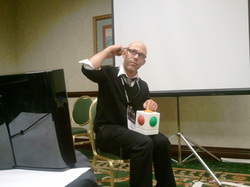Evaluating Educational Technology

Technology offers educators and students exciting new opportunities for learning and scholarship. However like any other tool, technology carries with it certain risks and challenges. Before we can avail ourselves of its benefits we must first develop the ability to think critically about technology. When I consult with education professionals, school administrators and parents, I encourage them to consider the following questions when evaluating technology:
All of these factors must be taken into account when evaluating educational technology as well as many others besides. Critical evaluation of technology is not just about understanding technology; it is about understanding people. In the world of school librarianship there is a saying “The right book for the right child.” This principle is equally applicable to the field of education technology. Understanding how learners relate to and interact with technology is just as important as understanding the technology itself. The greatest benefit students can gain from technology in the classroom is learning how to use technology critically both in school and in life.
- Is the technology well designed, comprehensive and robust?
- Does the technology offer strong teacher tools/controls?
- Can the technology be customized to address the unique needs of each learner?
- Does the technology offer student records that allow educators to track progress?
- How long will this technology remain relevant over time?
- What are the potential benefits of this technology and can we integrate it into our curriculum?
- What are the needs of the students I work with?
- How does new technology address the learning needs of my students?
- How will learners relate to, perceive and interact with new technology?
- How will this technology impact the way students learn?
All of these factors must be taken into account when evaluating educational technology as well as many others besides. Critical evaluation of technology is not just about understanding technology; it is about understanding people. In the world of school librarianship there is a saying “The right book for the right child.” This principle is equally applicable to the field of education technology. Understanding how learners relate to and interact with technology is just as important as understanding the technology itself. The greatest benefit students can gain from technology in the classroom is learning how to use technology critically both in school and in life.
